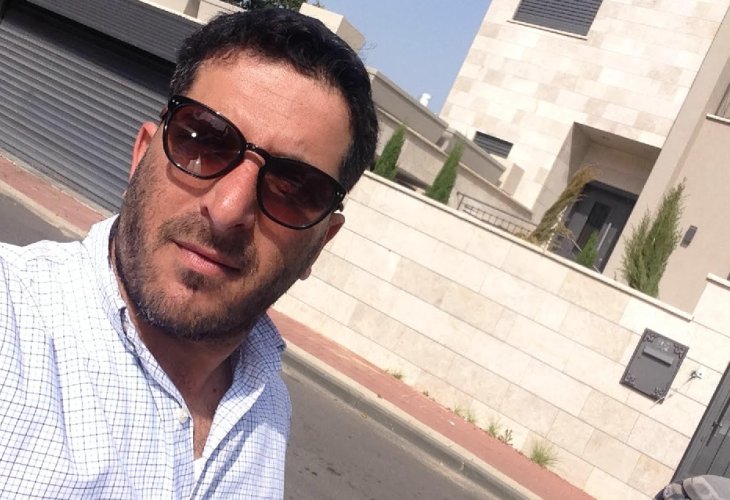Personal Stories
His Mitzvah to Save Someone Else Ended Up Saving Him
A man’s dream to donate a kidney revealed a hidden tumor and brought about a life-saving miracle
- Hidabroot
- |Updated

Yaniv Dahan dreamed of doing something deeply meaningful, to donate a kidney and save someone’s life. “About two years ago, while I was in the United States, I first heard about a Jewish man who had donated a kidney to save a fellow Jew he didn’t even know. His name was Tomer Naftali, my younger brother’s brother-in-law. I stayed at Tomer’s house in Monsey while accompanying a relative who needed medical treatment in the U.S.”
One good deed led to another. Because Yaniv volunteered to help his sick relative, he ended up meeting Tomer, the kidney donor, and became inspired by his story. “I was deeply moved, and to be honest, I felt a little jealous of the incredible mitzvah he had done. That’s when my own desire to donate a kidney began.”
In the following months, Yaniv had two more reasons to pursue this goal. First, he found out that a close friend needed a kidney transplant. “I offered to donate to him, but since he lived in New York, he turned me down, explaining that it’s complicated to transfer a kidney from Israel to the U.S. He encouraged me to donate to someone in Israel instead.”
Then another friend, Rafael Shilitz, donated his kidney. “Rafael told me that donating a kidney didn’t just give life to the recipient, it made him feel like he himself had been reborn. That’s when I knew I wanted to experience that, too.”
Yaniv took the first step toward fulfilling his dream during what should have been a routine visit to his family doctor. He needed a medical certificate to upgrade his motorcycle license. When the doctor finished signing the form, Yaniv casually asked, “By the way, what tests do I need to take if I want to donate a kidney?”
The doctor looked surprised. “Why? Is something wrong?”
“No,” Yaniv replied. “Thank God, my family and I are all healthy. I just want to do a mitzvah.”
The doctor handed him a list of medical tests. The first test was an ultrasound of his kidneys. Everything looked normal on the right side, but the technician spent a long time examining the left kidney. Yaniv began to worry.
“Is everything alright?” he asked nervously.
“Don’t worry,” the technician said quietly. But something didn’t feel right.
Later that day, Yaniv went to pick up his wife, Orit, from work. They went to the beach together, and he told her about the tests and his growing desire to donate a kidney. “I want to do this,” he told her, “and I’ve already started the process.”
Orit was touched. Her eyes filled with tears, and she promised she wouldn’t stand in his way.
That Friday, just before Shabbat, the results from the kidney ultrasound arrived. Yaniv had already made plans to continue the donation process with Rabbi Yeshayahu Haber, founder of the Matnat Chaim (Gift of Life) organization, which helps facilitate kidney donations in Israel.
But instead of green lights, the report delivered a shock. “Tumor, 8 centimeters in diameter,” it read. “CT scan recommended.”
Yaniv showed the results to his wife. The food cooking for Shabbat that night nearly burned. Everything stopped.
The next few days were a whirlwind. Rabbi Firer, known for his guidance in medical cases, got involved. Rabbi Haber consulted a senior doctor in Switzerland. A family friend made calls to fast-track the CT scan. It was scheduled for Thursday.
Not wanting to wait weeks for results, Yaniv chose to go straight to one of Israel’s top specialists, Dr. Bar-Ziv of the Mor Institute. Yaniv and Orit waited outside his office for what felt like forever. Finally, the doctor brought them in and said, “Your God must really love you.”
Yaniv felt his heart stop. “Doctor, should I be worried?”
“Maybe yes, maybe no.”
“Is it benign?”
“Maybe yes, maybe no,” the doctor answered. “But I can tell you this, it was caught in time.”
The next day, Yaniv met with Professor Klausner, head of the surgical department at Ichilov Hospital. The professor had heard about Yaniv’s story through Rabbi Firer and was moved. “There’s definitely reward for doing a mitzvah,” he said, and personally took on Yaniv’s case.
Thanks to private health insurance, Yaniv could schedule the surgery right away. He and Orit had only one question left: should they do it before or after Rosh Hashanah? They decided on the Fast of Gedaliah. Rosh Hashanah would be a day of heartfelt tefillah (prayer) for a successful surgery.
“It was a tense but uplifting Rosh Hashanah,” Yaniv recalls. “On the second day, I walked to the Kotel at dawn and said Tehillim (Psalms) the entire way.”
The surgery took place the next day. It was supposed to take two hours, but it lasted four and a half. Professor Klausner had made a bold choice: instead of removing and discarding the kidney, he took it out, carefully cleaned the tumor, and placed it back inside.
“He told me later that he made the extra effort because of the story behind it, the story of a man who only wanted to give a kidney.”
The tumor was found to be benign, but it had the potential to turn dangerous. “The doctors told me it had been pressing on the main artery,” Yaniv says. “If it had continued to grow, it could have caused an aneurysm and led to sudden death.”
Yaniv made a full recovery after the surgery. And now, even though he has to wait four years for medical clearance, he still plans to donate a kidney when he can.
“This whole journey has taught me something very deep, you never lose by doing chesed (kindness).”
And what does Orit think now?
Yaniv smiles. “She says, ‘Sometimes your crazy ideas turn out to be amazing ones.’”

